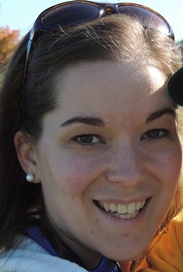Want to Do a Staff Book Study? Here Are 4 Books to Get You Started.

I sometimes like to think that I am a fully developed, 100-percent-complete human. I know who I am and what I stand for, both personally and professionally. This means my professional identity is fully formed and solid as a rock, right?
The truth is that our identities, especially as professional educators, are always shifting. We’re confronted with new theories, technologies, and trends. And as I’ve found with a fellow group of teachers, who together are part of a professional book study, the drive for constant learning is a component of every great teacher’s professional identity.
Over these few years, we have read some thought-provoking, conversation-starting books. Here are four titles that can inspire a professional book study in your school.

How Children Succeed: Grit, Curiosity, and the Hidden Power of Character
Our first book study, and probably my favorite to this day, How Children Succeed, got our group talking about non-cognitive skills. These are skills like grit and conscientiousness, and the kinds that impact classroom learning and the overall success of our students.
The book’s findings were eye-opening–yet also confirmed some mutual understanding that we felt we had gained after years of teaching teenagers. Author Paul Tough’s stories about students’ overcoming adversity with these traits were also hopeful and inspiring, feelings that are occasionally lacking in educational texts. And for me, reading this book with a 5-month-old baby at home not only changed my outlook on teaching, but on parenting too.
How Children Succeed will remind you just how much our students go through as people, and of how resilient they can be.
 The Smartest Kids in the World: And How They Got that Way
The Smartest Kids in the World: And How They Got that Way
Amanda Ripley, in The Smartest Kids, conducts extensive interviews with three American high school students who study for one year in some of the world’s highest-performing countries: Finland, South Korea, and Poland. For our book study, Ripley’s research opened up passionate conversations about teacher preparation in the United States, and how additional opportunities, like sports and clubs, can be double-edged swords in our schools. As a bonus, this book works as a student text too, and has been adopted by some of our teacher participants into their classroom curriculum in courses like AP Language and IB Theory of Knowledge.
The takeaway: The Smartest Kids in the World will help demystify some of the chatter about education in other countries, and will reinforce the extent to which a system of education is influenced by culture.
 Make It Stick: The Science of Successful Learning
Make It Stick: The Science of Successful Learning
Make It Stick focuses on the phases of learning and memory-making, and the necessary steps and strategies to move information from short-term to long-term memory, and then to keep it there. In our book study, a particularly hearty, and still ongoing, conversation formed around the “illusion of mastery” concept. We touched on the importance of revisiting key concepts, and how understanding can be measured in a standards-based grading model. Of the books we have read so far, this one had the most obvious and direct applications for classrooms, and has revolutionized the way one of my colleagues teaches.
The takeaway: Make It Stick will send you straight to your desk to start revamping lesson plans in order to revisit content.

The Teenage Brain: A Neuroscientist’s Survival Guide to Raising Adolescents and Young Adults
The Teenage Brain brought us heavily into the world of brain science. The book looks at how the teenage brain responds to stress, intoxicants, digital devices, and mental illness, subjects that have given our cohort conversational fodder that will last for years. I’m also finding strange comfort in knowing well in advance some of the strategies that I can apply when my own children become teenagers, the thought of which already keeps me awake at night even though neither of them is school-aged.
The takeaway: The Teenage Brain was a great reminder that while it is easy to think of our teens as mini-adults, they have not developed to the point that we can expect to see consistent adult behavior.
Blogger’s Note: I may never have gotten around to reading these books if they hadn’t been recommended by my colleagues and friends, Brian Langley & Lauren Nizol, and if I didn’t work, read, and discuss with such a wonderful & curious group of teachers. Thanks to all!
 Bethany Bratney (@nhslibrarylady) is a National Board Certified School Librarian at Novi High School and was the recipient of the 2015 Michigan School Librarian of the Year Award. She reviews YA materials for School Library Connection magazine and for the LIBRES review group. She is an active member of the Oakland Schools Library Media Leadership Consortium as well as the Michigan Association of Media in Education. She received her BA in English from Michigan State University and her Masters of Library & Information Science from Wayne State University. Bethany is strangely fond of zombies in almost all forms of media, a fact which tends to surprise the people that know her. She has two children below age five, and is grateful at the end of any day that involves the use of fewer than four baby wipes.
Bethany Bratney (@nhslibrarylady) is a National Board Certified School Librarian at Novi High School and was the recipient of the 2015 Michigan School Librarian of the Year Award. She reviews YA materials for School Library Connection magazine and for the LIBRES review group. She is an active member of the Oakland Schools Library Media Leadership Consortium as well as the Michigan Association of Media in Education. She received her BA in English from Michigan State University and her Masters of Library & Information Science from Wayne State University. Bethany is strangely fond of zombies in almost all forms of media, a fact which tends to surprise the people that know her. She has two children below age five, and is grateful at the end of any day that involves the use of fewer than four baby wipes.
